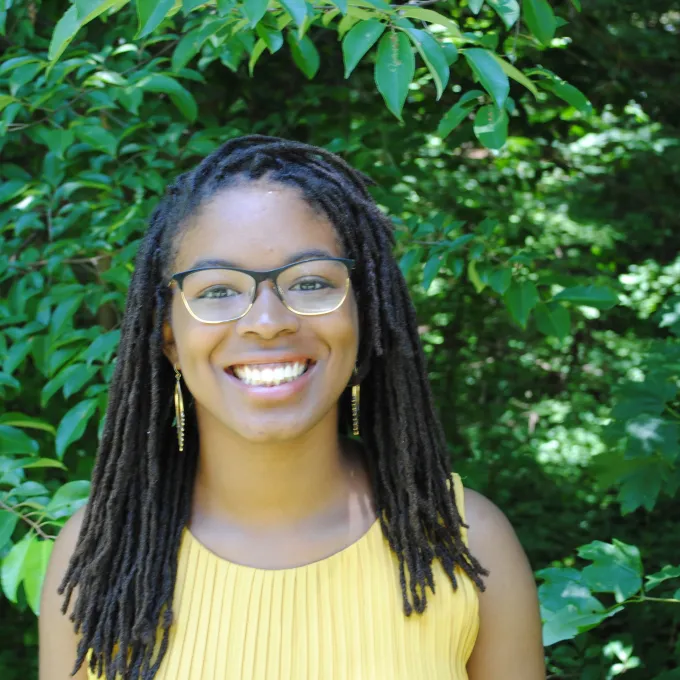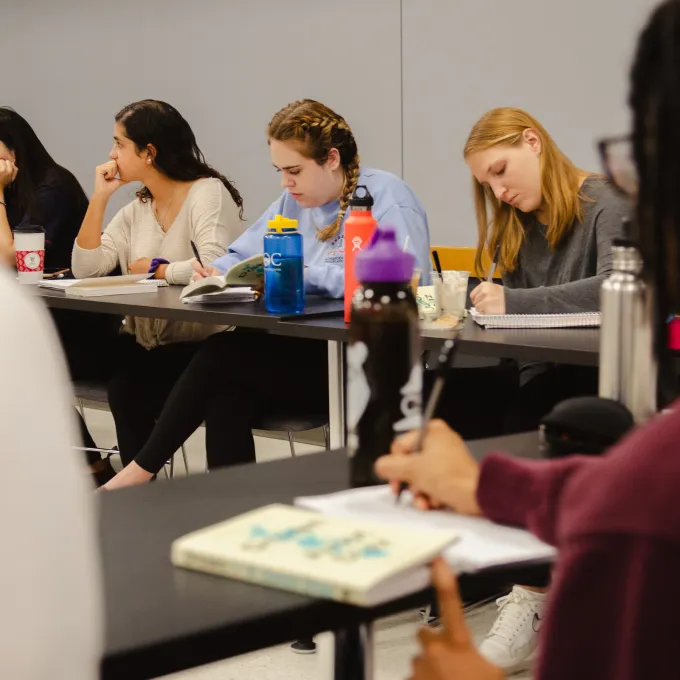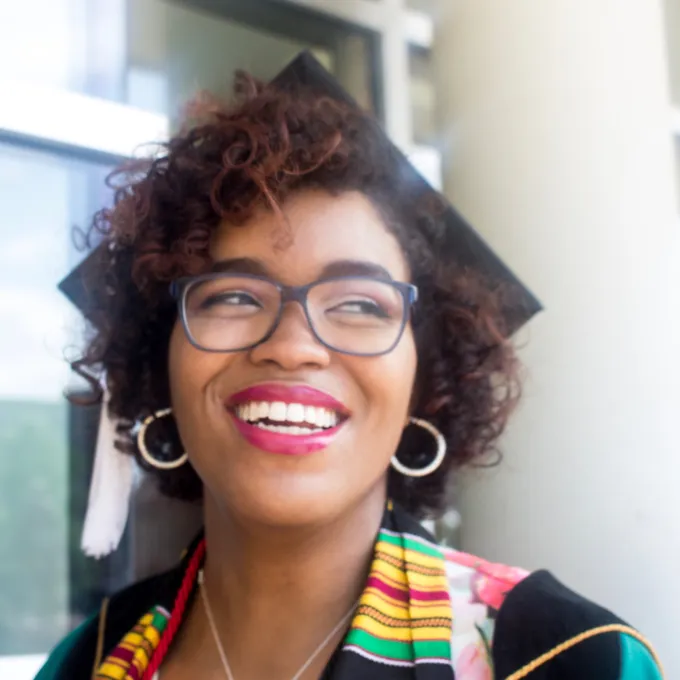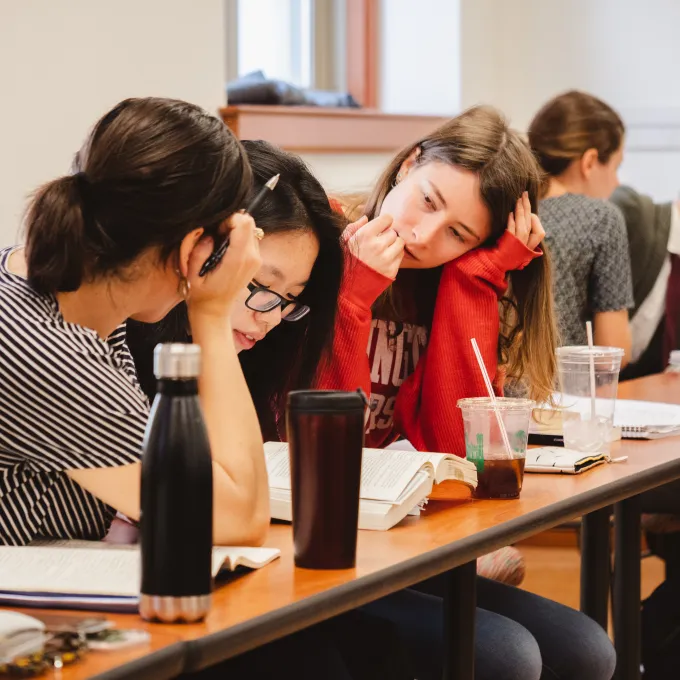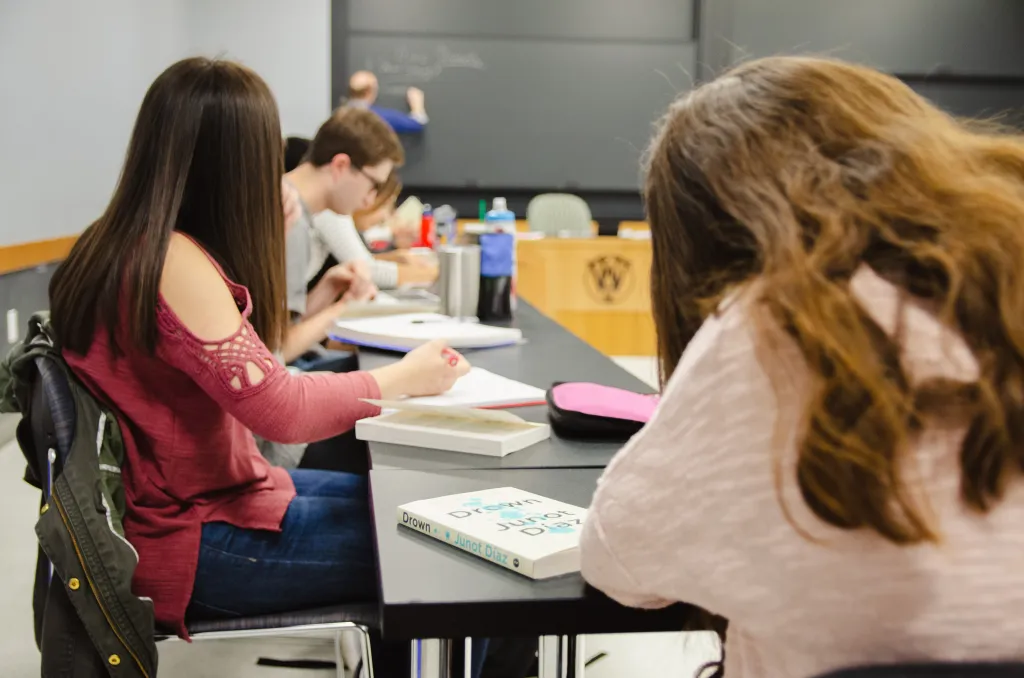We encourage dedicated English majors who can be expected to graduate with a 3.65 average or better, particularly those considering graduate school in literature, to pursue departmental Honors in English. Many of our Honors graduates have pursued Ph.D.'s in the most prestigious graduate programs in literary study; others have pursued post-graduate work in Teach for America, elite MFA programs, and highly ranked law schools, divinity programs, and other professional schools. To be admitted into the Honors program, which spans both semesters of the senior year, students must demonstrate their readiness not only as evidenced by the high grades they have earned in coursework for the major but also by having taken challenging courses in a range of subject areas.
English Honors students take, in addition to fulfilling the major requirements, two sequential Honors seminars (ELIT 3891: Senior Research Seminars I and II), one of which can count as an upper-level elective towards the major. This intensive seminar aims to cultivate the intellectual skills and habits required for a successful honors degree, and is taken in both the fall and spring of the senior year. Students also enroll in an independent study course (ELIT 5001:Honors Thesis Tutorial) with their thesis advisor's signature. Throughout the senior year students must maintain a 3.65 average in their English classes as well as a 3.65 undergraduate average overall in order to receive final Honors in English.
To apply for Honors candidacy, students submit an application form and a writing sample (an essay of no fewer than eight pages written for a previous English literature course). Students must also arrange to have two English literature instructors write brief recommendations on their behalf, which should be emailed directly to Professor Guinn Batten (mgbatten@wustl.edu) in English. All application materials must be submitted by May 15th before the student's senior year, but students are encouraged to apply earlier if they can. Students will be notified of the outcome by June 15. Given this schedule, prospective Honors candidates who will study abroad during one or both semesters of their junior year are encouraged to consult the Director of English Honors, Professor Guinn Batten, before departure.

